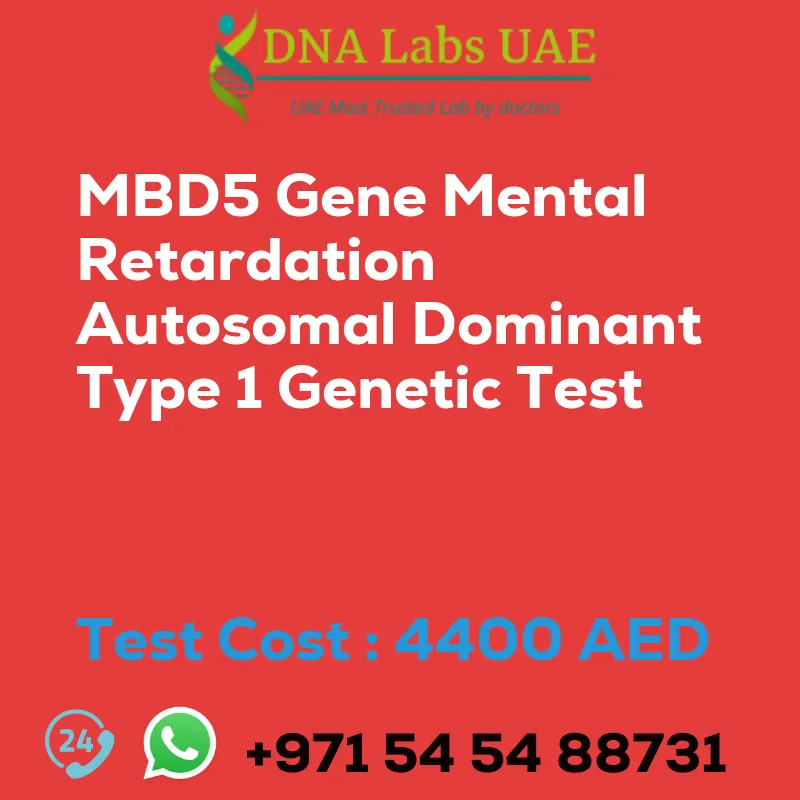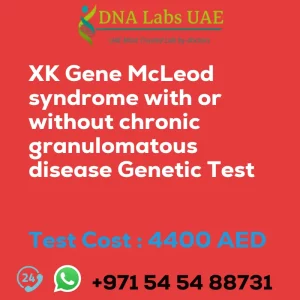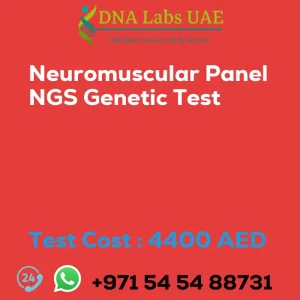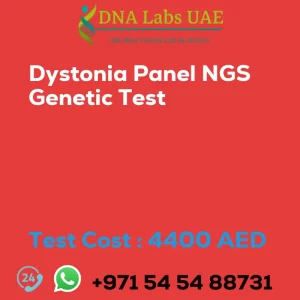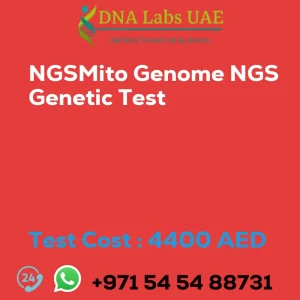MBD5 Gene Mental Retardation Autosomal Dominant Type 1 Genetic Test
At DNA Labs UAE, we offer the MBD5 Gene Mental Retardation Autosomal Dominant Type 1 Genetic Test. This test is designed to diagnose individuals with autosomal dominant type 1 (MRD1) mental retardation, a specific type of intellectual disability.
Test Components and Price
The MBD5 Gene Mental Retardation Autosomal Dominant Type 1 Genetic Test is priced at 4400.0 AED. The test requires a blood sample, extracted DNA, or one drop of blood on an FTA card.
Report Delivery and Method
Once the sample is received, the report will be delivered within 3 to 4 weeks. The test utilizes NGS (Next-Generation Sequencing) technology, which allows for the analysis of multiple genes simultaneously.
Test Type and Doctor
The MBD5 Gene Mental Retardation Autosomal Dominant Type 1 Genetic Test falls under the category of Neurological Disorders. It is recommended to consult with a Neurologist for this test.
Test Department and Pre Test Information
This test is conducted in our Genetics department. Prior to the test, it is important to provide the clinical history of the patient who is going for the MBD5 Gene Mental Retardation Autosomal Dominant Type 1 NGS Genetic DNA Test. Additionally, a Genetic Counselling session will be conducted to draw a pedigree chart of family members affected with MRD1.
About the MBD5 Gene and MRD1
The MBD5 gene is associated with autosomal dominant type 1 (MRD1) mental retardation. This means that an individual only needs to inherit one copy of the mutated gene from either parent to develop the condition.
NGS genetic testing is used to identify mutations or changes in the MBD5 gene that may be responsible for MRD1. This type of genetic testing can help confirm a diagnosis of MRD1 in individuals with suspected intellectual disabilities or developmental delays. It can also be used to identify carriers of the MBD5 gene mutation within families, which can be helpful for family planning and genetic counseling.
It’s important to note that a positive genetic test result does not necessarily mean that an individual will develop symptoms of MRD1. The severity and specific features of the condition can vary widely among affected individuals, even within the same family.
If you have concerns about MRD1 or any genetic condition, it’s best to consult with a genetic counselor or healthcare professional who can provide more specific information and guidance based on your individual circumstances.
| Test Name | MBD5 Gene Mental retardation autosomal dominant type 1 Genetic Test |
|---|---|
| Components | |
| Price | 4400.0 AED |
| Sample Condition | Blood or Extracted DNA or One drop Blood on FTA Card o |
| Report Delivery | 3 to 4 Weeks |
| Method | NGS Technology |
| Test type | Neurological Disorders |
| Doctor | Neurologist |
| Test Department: | Genetics |
| Pre Test Information | Clinical History of Patient who is going for MBD5 Gene Mental retardation, autosomal dominant type 1 NGS Genetic DNA Test A Genetic Counselling session to draw a pedigree chart of family members affected with MBD5 Gene Mental retardation, autosomal dominant type 1 |
| Test Details |
The MBD5 gene is associated with a specific type of mental retardation known as autosomal dominant type 1 (MRD1). Autosomal dominant means that an individual only needs to inherit one copy of the mutated gene from either parent to develop the condition. NGS (Next-Generation Sequencing) genetic testing is a type of DNA sequencing technology that can analyze multiple genes simultaneously. In the case of MRD1, NGS genetic testing can be used to identify mutations or changes in the MBD5 gene that may be responsible for the condition. This type of genetic testing can help confirm a diagnosis of MRD1 in individuals with suspected intellectual disabilities or developmental delays. It can also be used to identify carriers of the MBD5 gene mutation within families, which can be helpful for family planning and genetic counseling. It’s important to note that a positive genetic test result does not necessarily mean that an individual will develop symptoms of MRD1. The severity and specific features of the condition can vary widely among affected individuals, even within the same family. If you have concerns about MRD1 or any genetic condition, it’s best to consult with a genetic counselor or healthcare professional who can provide more specific information and guidance based on your individual circumstances. |

